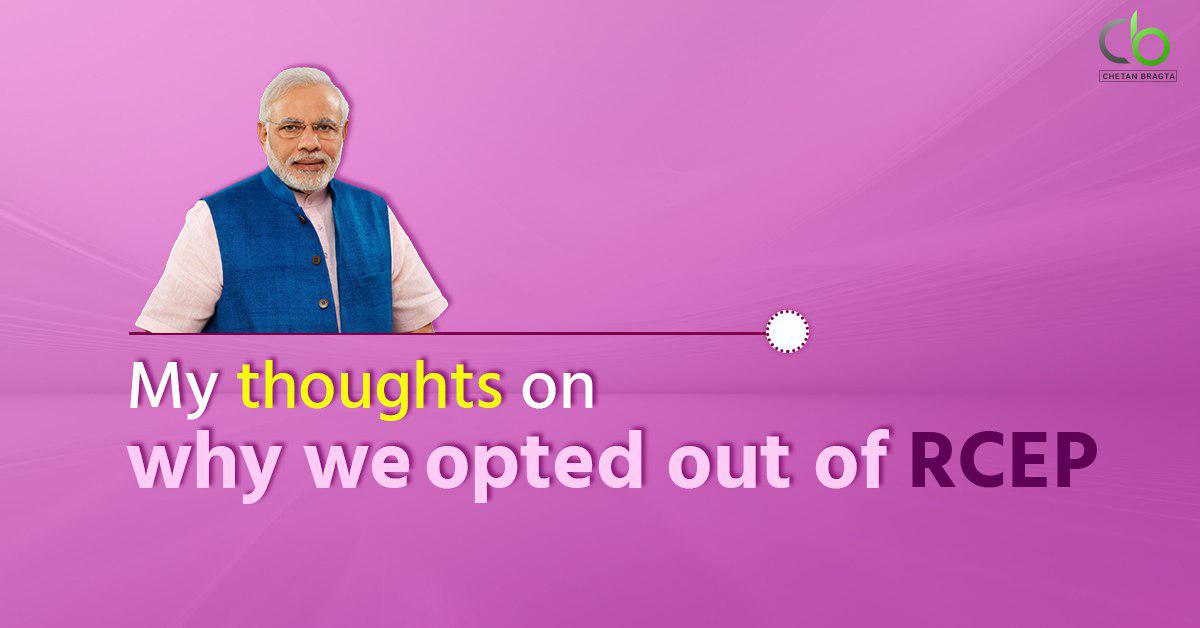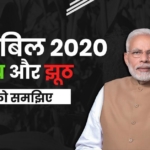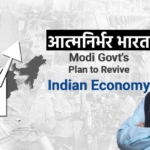
It was recently reported that India has pulled out of RCEP on November 4, 2019. In this post, I will look at the reasons why India has declined to join RCEP and what this decision means for the Indian economy.
What is RCEP?
The Regional Comprehensive Economic Partnership or RCEP, a free trade agreement, was launched in November 2012. RCEP consists of ten member states of the Association of Southeast Asian Nations (Brunei, Cambodia, Indonesia, Laos, Malaysia, Myanmar, the Philippines, Singapore, Thailand, and Vietnam) and five Free Trade Agreement partners (China, Japan, New Zealand, South Korea, and Australia). Economists and policymakers have always lauded RCEP as a key instrument that can foster economic cooperation and integration in Asia. India was one of the proposed signatories of RCEP in the beginning.
Why did India decide to quit RCEP?
India’s participation in RCEP would have been critical for bolstering the relationship between Asian countries. The primary reason behind India opting out of RCEP was to uphold its strong sense of self-reliance which has found a new boost under the able leadership of our Prime Minister, Narendra Modi ji. Since Modiji assumed his role in 2014, the Government of India has been very vocal in demanding favorable trade conditions from the member countries in order to safeguard the interests of the Indian manufacturers and farmers. Piyush Goyal ji, Union Minister of Commerce and Industry, also put forth a list of demands that were non-negotiable for India. These included:
- amendment in tariff differential;
- changes in the base rate for customs duty;
- changes in the most favored nation (MFN) rule;
- asking for exemptions built into ratchet obligations as part of the pact; and
- respecting India’s federal character while determining investments
However, the talks failed and India was not left with any other option than opting out of RCEP. Based on my readings, I understand that the following reasons were instrumental in deciding that RCEP was not addressing the key concerns adequately:
- The threat of Chinese goods penetrating the Indian market has been a long-standing concern. It has been reported that India already has a massive trade deficit with China that amounts to $53 billion and is the biggest trade deficit that India has with any other country. The government has sent repeated requests to China to ease the trade barriers as it is next to impossible for the pharma and IT sectors to enter the Chinese market. This was also discussed during Modi ji’s meeting with Xi Jinping earlier this year. China, being at the helm of RCEP, has not taken any measures to aid India’s ease of doing business in China.
- Protecting the vulnerable sections of the economy such as the farmers and the agricultural sector has been the focal point of the Modi government. Had we continued with RCEP, there would have been fierce competition in this sector from countries such as Australia and New Zealand. This would have left our agrarian economy in shambles.
- Other industries such as steel and iron manufacturers would have also found it difficult to survive in the market had imports been allowed on account of RCEP. This would have also impacted our economy adversely.
Conclusion
In the words of PM Modi ji, ‘Whenever I try and gauge India’s interest in light of her joining RCEP, I do not get an answer in the affirmative; neither Gandhiji’s policy of self-reliance nor my wisdom allows me to join RCEP.’ I think this itself sums up why it is a prudent decision for India to not be a part of RCEP. I am also drawn towards the succinct statement made by Amitbhai Shah ji, wherein he said: What makes this decision significant is that this has yet again demonstrated that the PM can go to any extent to safeguard the interests of farmers, small and medium enterprises (SMEs), textile, dairy and manufacturing, medicine, steel, and chemical industries. The PM didn’t compromise on it since the agreement didn’t seem to accommodate India’s concerns on issues like trade losses and dumping. India should not be a party to any such international treaty that’s one-sided & against the interests of our farmers and entrepreneurs. I couldn’t have put it better myself and I am extremely proud of our Prime Minister for showcasing bravery in taking such a decision.
But the critics of Modi ji’s government should not worry. The government is already taking all the necessary steps to independently facilitate better trade relations with Japan, the US, EU countries, and other developed nations so that we are able to become a USD 5 trillion economy soon. I am confident that the government will be able to achieve this very soon.

